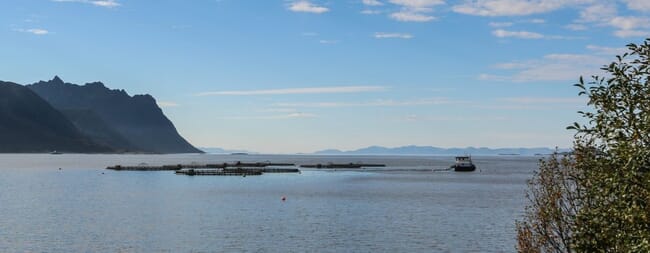It’s one of the new ideas for the future marine planning mooted in the ‘Changes to area planning for sea areas? Possible significance for aquaculture’ report from Nofima and NTNU Social Research – part of the Aquaculture Management 2030 project, which is funded by the Norwegian Seafood Research Fund (FHF).

© Lidunn M Boge, Nofima
More space is needed if the aquaculture industry is to grow, and the shortage of space is perceived as the greatest challenge to further growth.
“The introduction of ‘marine industrial parks’ is one of several proposals we consider in a new report that discusses possible changes to planning of sea areas. The report is part of the project Aquaculture Management 2030,″ says Nofima senior researcher Eirik Mikkelsen.
The project analyses the pros and cons of alternative ways of managing aquaculture, thus enabling a discussion on possible changes to be knowledge based. The report that is now finalised looks at how area planning can be changed and how it can affect the aquaculture industry’s access to areas. At the same time, researchers have considered the consequences this can have for other interests and for the planning process itself.
The researchers point to three changes that will probably increase the access to area for aquaculture.
- Larger plan areas
- Auction for lease of “area blocks” at sea
- Introduction of “marine industrial parks”
The project considers and analyses alternative management models for aquaculture, and the report is intended to provide a knowledge base for creating scenarios for the management of the aquaculture industry, and analyse their implications.
Many changes have been considered, including several that do not necessarily affect the area access for aquaculture. Nevertheless, some of them may be relevant to introduce for the purpose of improving the knowledge base for planning. In a 2018 survey of people involved in and responsible for planning in Troms and Hordaland counties, as many as 70 percent responded that there were interests or concerns that should have been better considered in current coastal zone planning.
“If the gathering of knowledge relevant to area planning is done more systematically outside planning processes and is made readily available to the public, it will increase the chance that the public debate is fact-based and that political decisions are not based on misconceptions,” says Mikkelsen.
The report has mainly assessed area planning in the coastal zone, and is thus based on currently prevailing aquaculture technology. However, Nofima notes, the development of new technology for offshore production and closed containment systems, may “significantly change the premises for area planning”.

